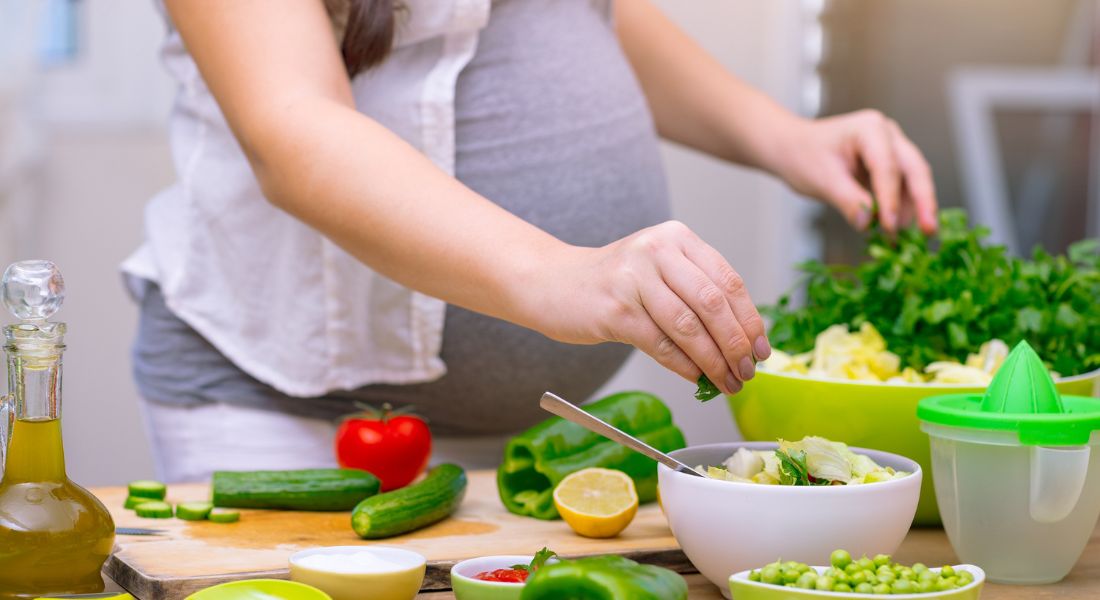Categories
Pregnancy And Nutrition- What to know
Oct 17, 2022
Pregnancy And Nutrition- What to know
When you are pregnant, your body goes through severe changes, both hormonal and physical. To cope with these changes, it is essential to make good food choices for you and your baby’s health. Consuming a balanced and healthy diet is good for your overall well-being as it provides everything for your changing body and your baby. The primary source of nourishment for your body is the food you eat, so you should get all the necessary nutrients from the food sources.
The good news is that it isn’t that hard to follow the nutritional guidelines for pregnant women. You have some tasty options as well, so even if you have cravings, you can come up with a healthy menu to satisfy those cravings. If you wish to have a healthy lifestyle during pregnancy, you should focus on the following main
components:
Balanced diet
Regular exercising
Appropriate weight gain
Timely and appropriate mineral and vitamin supplementation.
Caloric and dietary recommendationsYou need around 300 additional calories each day for maintaining a healthy pregnancy. These calories must come from a balanced diet of vegetables, fruits, whole grains, and protein. You should minimize the intake of fats and sweets. A well-balanced and healthy diet is also helpful in reducing certain pregnancy symptoms like constipation and nausea. Consult with the best gynecologist in Bangalore to get dietary recommendations specifically for you.
Fluid intake when you are pregnantAnother important aspect of pregnancy nutrition is fluid intake. You can get sufficient fluids if you drink several glasses of water every day. Additionally, you can get fluids from soups and juices. Alcohol in any form must always be avoided. It is also important that you restrict your caffeine intake as well as artificial sweeteners.
Foods ideal for pregnancy
Following are some of the foods that benefit your health during pregnancy and are good for fetal development:
Fruits: honeydew, cantaloupe, mangoes, bananas, prunes, apricots, oranges, and pink or red grapefruit (for potassium)
Vegetables: sweet potatoes, carrots, pumpkin, tomatoes, cooked greens, spinach, and red sweet peppers (for potassium and vitamin A)
Dairy: low-fat or fat-free yogurt, 1% or skim milk, soymilk (for potassium, calcium, vitamins A and D)
Proteins: peas and beans; seeds and nuts; lean beef, pork, and lamb; salmon, herring, trout, pollock, and sardines
Grains: cooked or ready-to-eat cereals (for folic acid and iron)
Foods to prevent during pregnancy
The following foods should be avoided when you are pregnant:Unpasteurized milk as well as foods made with unpasteurized milk such as soft cheeses.Luncheon meats and hot dogs
Undercooked and raw seafood, meat, and eggs. Although it is safe to eat cooked sushi, you should avoid sushi that is made with raw fish
Refrigerated smoked seafood
Meat spreads and refrigerated pâté
Food safety guidelines
When cooking or handling foods, you should follow the general guidelines:Washing: Make sure you thoroughly rinse all raw produce under running tap water before you cut, eat, or cook the.
Cleaning: After you handle or prepare uncooked foods, remember to wash the knives, cutting boards, countertops, and your hands.
Cooking: Ensure safe internal temperature while cooking beef, poultry, or pork
Chill: Be prompt in refrigerating the perishable foods.
Prenatal mineral and vitamin supplementationWhen you visit BirthRight by Rainbow Hospital’ evening clinic in Bangalore for pregnancy consultation, you will likely be prescribed a prenatal supplement before you conceive or just after conceiving. Healthcare providers prescribe these supplements to make sure the nutritional needs are met at the time of conception. However, you should remember that prenatal supplements do not replace a healthy diet.
It is recommended that women of childbearing age should consume 0.4 mg of folic acid every day. It is a nutrient found in green leafy vegetables, nuts, berries, citrus fruits, fortified breakfast cereals, and beans. Certain vitamin supplements also contain the nutrient.
Folic acid helps in reducing the risk of birth defects like neural birth defects (spinal cord and brain defect). Neural tube defects can cause incontinence, paralysis, and even intellectual disability. This birth defect mostly occurs during the first 28 days of pregnancy and that is when folic acid is particularly important. Hence, you should begin the intake of folic acid before conceiving and continue when you get pregnant.







